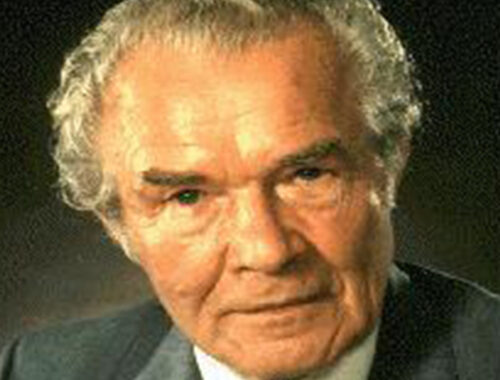
UCC presents preliminary results of its Community Engagement Survey
The Ukrainian Canadian Congress presented the preliminary overview results of the Community Engagement Survey, which the UCC undertook earlier this year.
“This is the first ever national survey of Ukrainian Canadians that’s been conducted by the UCC,” said Dr. Keith Neuman, the project’s consultant, during the online presentation on November 6. “We conducted it in an online format for six weeks between May 22 and June 30.”
Dr. Neuman is a Senior Associate with the Environics Institute and has provided consulting advice on methodology and design throughout the survey process.
The survey received over 4,000 responses across Canada. Neuman called this number “very healthy”, noting that it is more significant than most surveys, with a typical survey of Canadians being 1,500-2,000. He also said that the survey, which was available in English, French and Ukrainian, represents every region of the country across age groups, genders, immigration waves and languages.
The survey had the following objectives:
- To address the new challenges in the community across Canada. “This means talking about volunteerism, philanthropy, rates of involvement, organizations, structures and integration of newcomers,” he said.
- To create new opportunities for people from multiple perspectives to discuss their needs, desires, wishes and involvement programming.
- To continue to build inclusion and participation in the Ukrainian Canadian community.
According to Neuman, the most important findings were that for well over 80 per cent of respondents, Ukrainian Canadian identity is based equally on ancestry and culture and not one or the other. He said that what’s striking is that this pattern is consistent across the population by demography and provinces.
“I think that’s notable and may have some implications in terms of programming and some steps forward,” he said.
Another important finding is that most of the respondents place strong importance on their Ukrainian identity, which is a strong sentiment across the population, including across immigration waves.
The third notable finding was that many say that their identity has changed over the past ten years.
“Respondents were more likely to say that their Ukrainian identity has strengthened rather than weakened over the past 10 years,” Neuman said. “This is especially so among English speakers, 18-23-year-olds and 3rd generation Ukrainian Canadians.”
The fourth finding discussed was that language is a significant differentiating factor in identity and involvement in the Ukrainian community – more so than region, age group, gender or immigration wave, Neuman said.
The last notable finding of the Community Engagement Survey was that volunteer activity across the Ukrainian Canadian community is robust.
“Survey sample is not intended to be statistically representative of the entire Ukrainian Canadian population,” said Mariana Savka, UCC National Outreach and Program Coordinator, during the presentation. “But the large size of sample, combined with the fact that we have representation in every major demographic category, gives us a very useful set of data for our purposes.”
She said that there were responses from every single province and territory from across the country. Ontario had the largest percentage of responses – 40 per cent, followed by Alberta and Manitoba at 18 and 17 per cent, respectively. B.C. and Saskatchewan are each sitting at nine per cent. Quebec – at six per cent, Atlantic provinces and territories all had representation around 1 per cent.
With respect to age, Savka said that there was a solid representation of every age category, evenly split between Millennials (24-39), the Gen-Xers (40-55) and the boomers (56-74).
“Getting respondents in the youngest age category (18-23) in surveys is notoriously difficult, but with the help of our youth leaders, we got six per cent of the total, which we thought was excellent,” Savka said.
Savka said that the gender breakdown split higher on the female side, with 61 per cent of respondents identifying as female, compared to the male at 38 per cent.
There was equal representation from each of the three major generations, about 30 per cent each for first-generation, second generation and third or higher, with 23 per cent of respondents being from the first wave, 13 per cent from the second, 25 per cent from the third, three per cent from the Polish immigration of the 1960s 1970s, five per cent from the fourth wave and 17 per cent from the fifth.
When asked about their origins, 69 per cent of survey respondents said they identify as having a single Ukrainian ethnic origin, while about 30 per cent said they consider themselves having multiple ethnic origins.
“We can see that the number of Ukrainian Canadians that have single ethnic origin in our survey is far higher than it is in the general Ukrainian Canadian population,” Savka said. “So, it’s about 69 per cent in our survey population compared to 20 per cent of the general population as measured in the 2016 census.”
When it comes to household language and mother tongue, Savka said that the survey asked two questions, which gave different results.
“When we asked, ‘What was your first language spoken?’ 64 per cent of respondents said that it was Ukrainian. When we asked, ‘What is the main language spoken at your household?’ only 30 per cent responded ‘Ukrainian’.”
The UCC hopes that the survey will help address ongoing challenges and create new opportunities for building engagement, participation and inclusion in Ukrainian Canadian communities across Canada.
“By identifying what brings us together, we will be able to develop a strategic vision to continue building a highly effective and inclusive community across Canada,” said Alexandra Chyczij, UCC President, at the survey’s launch.
The UCC hopes to publish the final report of the results in early December.
This article is written under the Local Journalism Initiative agreement
Kateryna Bandura for New Pathway – Ukrainian News
Follow me on social media!You May Also Like

Cultural Heritage as an Element of National Security: the Crimea Lens
October 12, 2021
Ukrainian Canadian community reflects on Petro Jacyk ’s life
October 12, 2021

